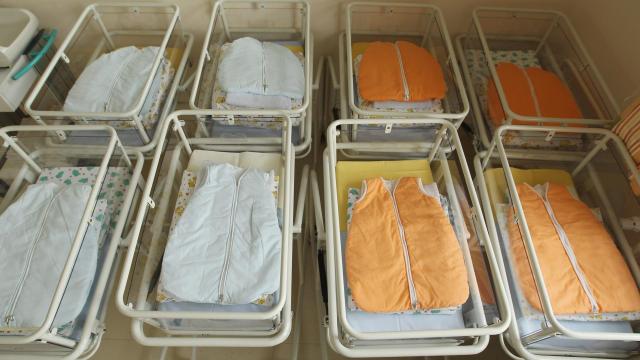New research affirms the added risk that pregnant people and their families face from COVID-19. Data recently released by the Centres for Disease Control and Prevention shows that pregnant people infected with COVID-19 are more likely to have a stillbirth; this link appears to have become stronger after the emergence of the Delta variant.
Studies have suggested for some time that COVID-19 is more dangerous for pregnant people. They’re more likely to experience serious illness, death, and delivery complications. This new research, published by the CDC last week, provides a closer look at the risk of stillbirth posed by the coronavirus, particularly the Delta variant.
The study looked at over a million hospital deliveries performed between March 2020 and September 2021. Stillbirths — the loss of a baby before or during delivery — were generally low during the time period. But individuals infected with COVID-19 at the time of delivery were still significantly more likely to have a stillbirth. Overall, about 1.26% of infected pregnant people had a delivery that ended in stillbirth, compared to 0.64% of those not infected.
The Delta variant of the coronavirus is much more transmissible than the original strains of the coronavirus that first spread around the globe last year. But there’s mixed evidence on Delta’s ability to cause more serious illness. According to the CDC, there is data showing that people in general may be more likely to become hospitalized as a result of Delta, but that hospitalized people then have similar outcomes as they did with pre-Delta strains. Unfortunately, this doesn’t seem to be the case for pregnant people.
During July 2021 to September 2021, when the Delta variant had become firmly established as the predominant form of the virus, the rate of stillbirth substantially rose among covid-infected people, from 0.98% of deliveries before Delta to 2.70%. Compared to non-infected people, this meant a roughly fourfold increased risk of stillbirth.
The findings seem to confirm anecdotal reports of more stillbirths and other complications during the latest Delta-led peak of the pandemic, and they don’t bode well for the near future, either. COVID-19 cases are undeniably on the rise again, though they remain concentrated among the unvaccinated.
Compared to the general public, however, pregnant people are still less likely to get vaccinated for COVID-19, in part due to misconceptions about the vaccines’ safety. In truth, studies have shown no increased risk of negative health outcomes from the vaccination of pregnant people, and experts, including the current study’s authors, continue to urge that they get vaccinated as soon as possible.
“Implementing evidence-based COVID-19 prevention strategies, including vaccination before or during pregnancy, is critical to reduce the impact of COVID-19 on stillbirths,” the authors wrote.
